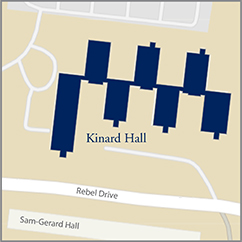 An article focusing on UM-CDRC’s research after the Gulf Oil Spill, titled “Coping with an Ecological Disaster: The Role of Perceived Meaning in Life and Self-Efficacy Following the Gulf Oil Spill” was published in the March 2012 of the peer-reviewed scholarly journal Ecopsychology. You can retrieve the full article from this website: http://online.liebertpub.com/loi/ECO . Also, see the abstract and citation below.
An article focusing on UM-CDRC’s research after the Gulf Oil Spill, titled “Coping with an Ecological Disaster: The Role of Perceived Meaning in Life and Self-Efficacy Following the Gulf Oil Spill” was published in the March 2012 of the peer-reviewed scholarly journal Ecopsychology. You can retrieve the full article from this website: http://online.liebertpub.com/loi/ECO . Also, see the abstract and citation below.
Drescher, C. F., Baczwaski, B. J., Walters, A. B., Aiena, B. J., Schulenberg, S. E., & Johnson, L. R. (2012). Coping with an ecological disaster: The role of perceived meaning in life and self-efficacy following the Gulf Oil Spill. Ecopsychology, 4, 56-63. DOI:10.1089/eco.2012.0009
Abstract
On April 20, 2010, the Deepwater Horizon oil platform exploded, releasing five billion barrels of oil into the Gulf of Mexico over five months (referred to as the Gulf Oil Spill). This oil spill affected Gulf Coast communities, harming both sea and land wildlife, damaging the fishing industry, and destroying natural resources. In the wake of such a disaster, many people experience decreases in their quality of life. However, coping mechanisms such as developing meaning or purpose in life and creating a sense of self-efficacy can allow people to recover. The present study evaluates the effect of the Gulf Oil Spill on 361 individuals seeking clinical services on the Mississippi Gulf Coast following the spill. Regression analyses revealed that the perceived effects of the spill were only weakly related to life satisfaction. Perceived meaning in life and self-efficacy were much more predictive of satisfaction with life, with perceived meaning in life serving as the most important predictor. These data provide initial support for models that emphasize the role of coping mechanisms in the wake of ecological disasters. Future research should evaluate the effects of such mechanisms using longitudinal and other designs that allow for stronger causal inferences. Clinical implications include the use of therapies that foster a sense of perceived meaning in life (e.g., logotherapy) and self-efficacy (e.g., cognitive behavioral therapy), as well as consideration of the specific ecological nature of disasters such as the Gulf Oil Spill.

